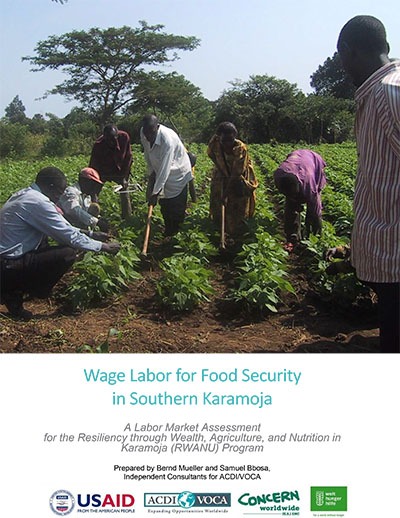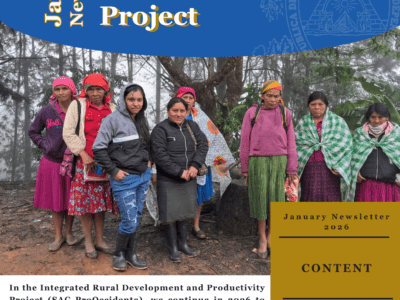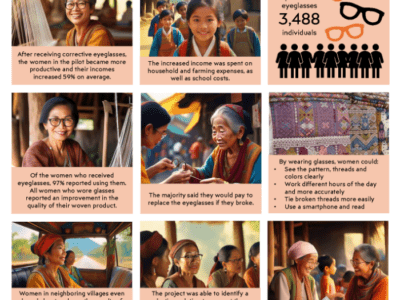
The Resiliency through Wealth, Agriculture, and Nutrition in Karamoja project (RWANU) aims to reduce food insecurity among vulnerable people in Southern Karamoja, Uganda, through improving access to food (SO1) and reducing malnutrition in pregnant and lactating women and children under five (SO2). Its intervention mechanisms and theory of change seek to achieve improved development and food security outcomes for its beneficiaries by focusing on their assumed primary ‘traditional’ livelihoods as either farmers or pastoralists. However, as a result of internal assessments as well as overarching studies on the subject of rural labor markets, it has become clear that many poor and food insecure households may rely heavily on wage labor incomes in order to get by. One RWANU study found that as much as 82% of households in the region earned their main source of income through casual labor (Fernandes 2013). Furthermore, a recent literature report found that wage labor is a much more common pathway out of poverty for rural poor households, than is commonly assumed (Mueller and Chan 2015). Following these general indications, RWANU commissioned the present study in order to create a better and more in‐depth understanding of the labor market in Southern Karamoja and the importance for wage incomes for its beneficiaries. The study generated recommendations for how the program may adapt to better incorporate and reflect these important livelihoods in its set of interventions.
The authors carried out qualitative field research in nine out of the 16 RWANU‐assisted sub‐counties in order to analyze the local labor market through semi‐structured interviews and focus group discussions. Over one‐hundred stakeholders and community members (the majority of whom are RWANU beneficiaries) were interviewed, yielding a wealth of information that is detailed in the present report.








